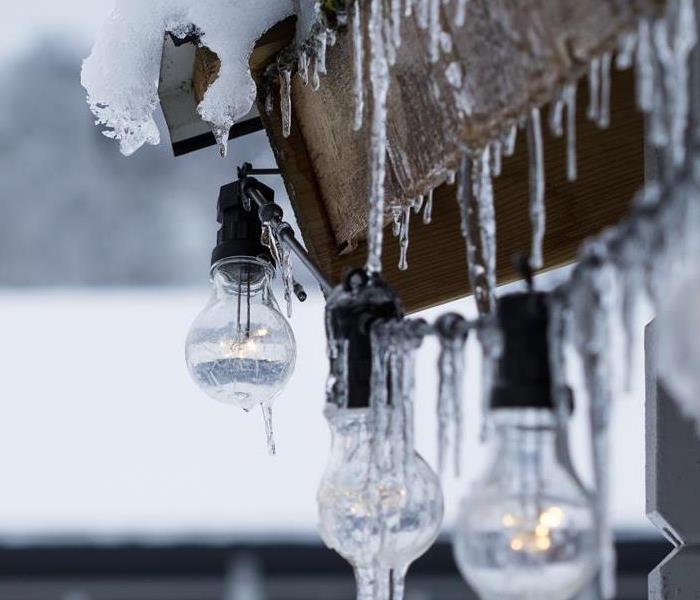Will frozen pipes thaw on their own?
1/4/2023 (Permalink)
In the winter, have you ever gone to turn on the faucet only to find that nothing comes out? If this has happened, you may be dealing with frozen pipes. And if your pipes are frozen, it's important to take action quickly since frozen pipes can lead to costly repairs. That being said, will frozen pipes thaw on their own or are you bound to experience a burst pipe? Let’s discuss.
What Causes Frozen Pipes?
Frozen pipes occur when the temperature drops below freezing and water inside the pipe freezes. When temperatures drop, it doesn't take long for the water in your plumbing system to freeze solid—especially if there is no insulation around the pipes. The most vulnerable spots are those that are exposed to outdoor elements such as unheated basements, crawl spaces and garages. If left untreated, frozen pipes can burst, causing extensive damage and expensive repair bills.
Will Frozen Pipes Thaw On Their Own?
This is a tricky question because it really depends on how cold it is outside and how much insulation your pipes have around them. Generally speaking, if temperatures remain below 32° F (0° C) for an extended period of time (days or weeks), then no amount of insulation will be able to keep your pipes from bursting due to the expanding ice inside them. However, if temperatures rise above 32° F (0° C) for at least 24 hours, then there is a chance your frozen pipe will thaw on its own without any intervention from you.
Even if you think your frozen pipe has thawed on its own, it’s important to check for any signs that there may be an underlying issue (such as rust or corrosion inside the pipe). If possible, check each fixture individually by turning on each tap one by one. Listen for any strange noises or changes in water pressure that could indicate an issue with the internal workings of your plumbing system.
What Can I Do To Avoid Frozen Pipes?
The best way to avoid frozen pipes is by taking preventative measures before temperatures drop too low in your area. Make sure all unheated areas of your home are properly insulated and that you’re running hot water through them regularly during cold weather months. This will give any existing ice a chance to melt away naturally before temperatures drop too low again.
Additionally, make sure all outside hose spigots are disconnected from their hoses and turned off completely during cold weather months. That way, any residual standing water does not have time to freeze solid inside them!
You’ll also want to take precautionary measures whenever you know the temperatures will drop. These measures can include everything from opening cabinet doors under sinks to allowing your faucets to continuously drip.
Frozen pipes can be extremely inconvenient and costly if left untreated—and unfortunately they won't thaw on their own! However, with proper precautions, you should be able to avoid this problem altogether! In addition, knowing how to safely thaw out those pesky frozen pipes can save you loads of time and money down the line, as well!






 24/7 Emergency Service
24/7 Emergency Service
